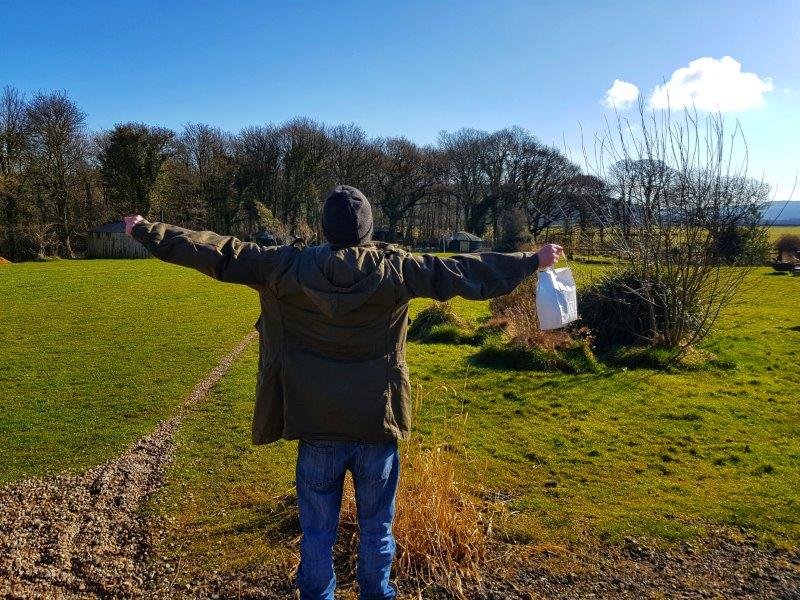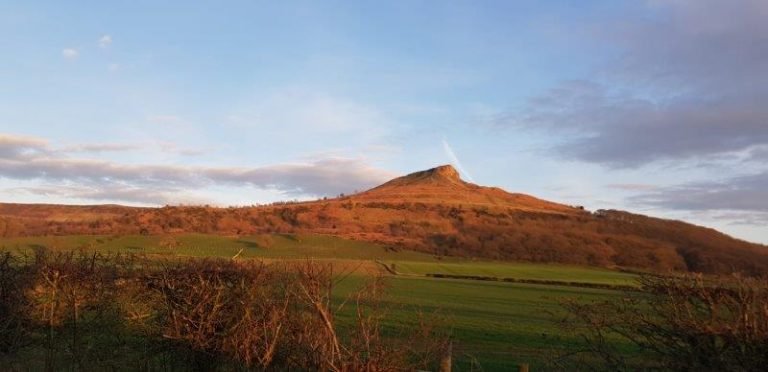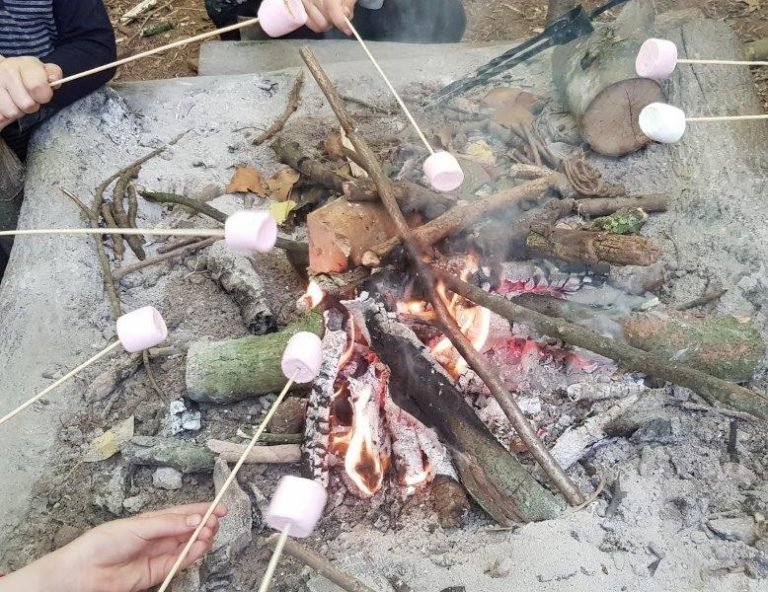So what’s Rewilding…?
Rewilding. There’s a lot in that! It isn’t just a name we chucked in to give ourselves a title; rather, it’s months of thinking and consideration of why we do what we do- what the values of the business are and the philosophy behind our practice.
Rewilding has different meanings in different contexts. It is an approach to ecological conservation, in that habitats are left to establish the natural order of things. Another, is that species who once existed in a habitat are reintroduced- possibly adding another link to the food chain. The meaning that has most appeals to us, is the way we, as a society have become dewilded- and Rewilding is a way of adding this back into our lives!
Dewilded:
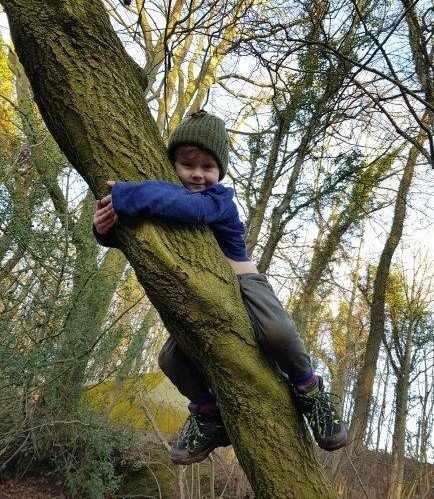
By dewilded I don’t mean that we can no longer name particular trees, identifying the medicinal uses of plants- or that our behaviour has become more refined or sensible (and less feral…); neither do I mean that there is a absence of wildness, and the traits we would expect to see with that. What I do mean by dewilded is that the qualities we posses- that were once common place and used in our day-to-day lives- are now dwindling, not being used due to other influences. But it’s also about the physical element of spending time outside, and being active in untamed environments. Richard Louv talks of Nature Deficit Disorder- that interacting with green spaces has numerous positive effects, these are emotional, physical and personal!
What qualities:
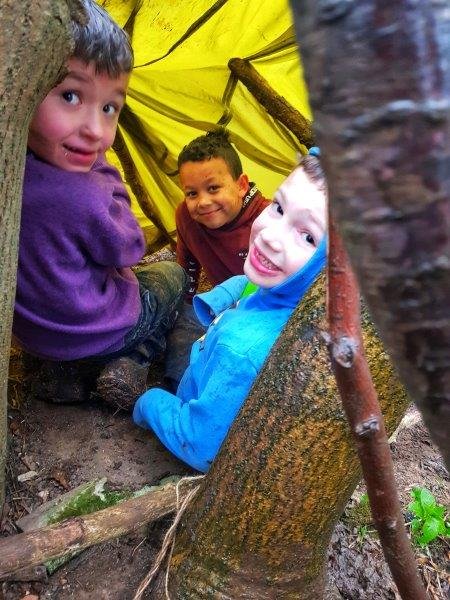
Firstly, qualities are things we posses that allow us to do what we do as people. Perseverance for example. If we have this quality we can stick at something, delaying the prize of finishing it but keeping going nonetheless. When I write of perseverance I’m thinking of the children who come to Forest School each week and work to achieve their John Muir Award over 28 weeks- working on their conservation challenge of establishing a length of path in the woodland. And the quality of responsibility– when 15 year olds guide themselves over the North York Moors for three days on a DofE expedition. Having to organise, carry and manage everything for themselves- often for the first time. So the process of developing this responsibility happens over the course of six or seven months. From first knowing they will be doing it, being trained to do it, thinking of how they will do it, planning it, undertaking a practice where they are supported, and then finally doing the expedition.

Kurt Hahn, the founder of the Outward Bound movement, spoke of character building. Nowadays, we use the term to mean some unpleasant experience that allows us to grow. But at the heart of this, is the development of emotional resilience. Knowing how we feel: scared, worried, excited, disheartened- and then being able manage that, in order to achieve something.
Other qualities rewilding contributes to include: tenacity; creativity; curiosity; independence; self-reliance; self-regulation; problem solving; patience; reliability; ambition; initiative; concentration, confidence and risk management!
Rewilding- a verb and a noun:
I very much see Rewilding as both a noun- that names the concept outlined above; as well as a verb- that is the thing we do as we are engaging in activities! That said, it is not that we are rewilding you- actually, I see it as you are rewilding yourself – we simply use the approaches, activities and environments that we do- and when you engage with them- you begin the process!
It’s not a quick process:
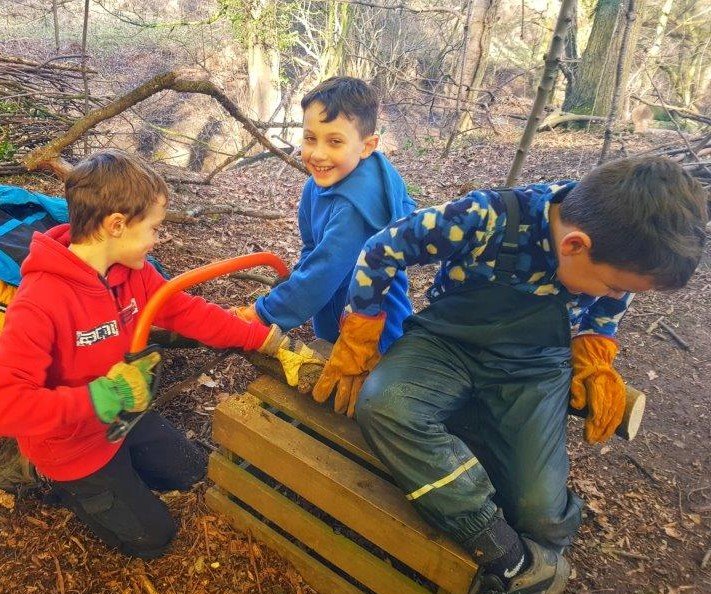
Developing qualities is not a quick process. And often, it’s very gradual and goes unnoticed. If you look at the Forest School approach, it is an on-going thing! It isn’t a one off session, or a week long visit. It should happen regularly for a year- or two! That’s when we are going to see the maximum development of qualities!
As well as developing qualities, there are a range of other outcomes that rewilding brings. You might have noticed our elevator pitch-those 20 words that seeks to describe who we are succinctly and clearly:
‘We love to lead and share outdoor adventure experiences with you, in wild places to promote physical, mental, emotional and social well-being!’
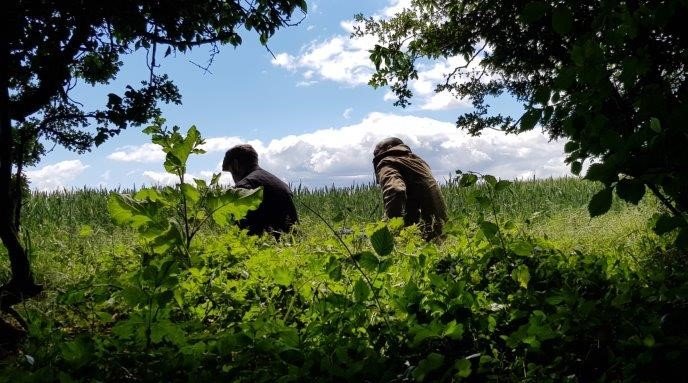
As you will see, many of the qualities discussed above contribute to the emotional and social well-being elements- many of the physical elements are obvious- such as the time in fresh air, being active- just walking, or digging, or cutting wood. But also, the fine motor skills that are developed when using a sheath knife, or crook knife to carve a spoon. The strength from splitting wood with a bill hook. The balance from walking on uneven surfaces ( this is a really noticeable development even within an hour of seeing someone enter the forest with hesitant and tottering steps, to them confidently traversing a hillside on wet ground). Even the increased eye health due to changing focus on the thousands of trees, plats, flowers and objects in the environments.
Being among nature and in green spaces has incredible benefits for stress and anxiety- much of what we do is very mindful in nature- and the freedom that people have and the successes they experience develops self-esteem. Animalisticly- we are we connected with the woodland- if it’s calm, then we are calm because our senses are settled. Just look at children on a windy day! They go bonkers- the reason being is that they cannot hear or see as well- they will not notice a predator, or prey- so they have a heightened sense of alertness and activity to survive- useful in a classroom eh?
Where has all of this come from:
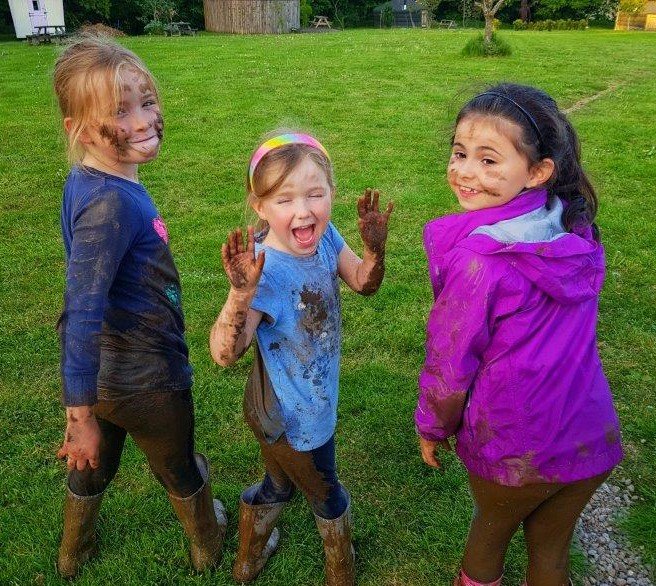
When I’m not in the woods or on the hills, I’m also stuck in a seminar room teaching undergraduate students on the BA(Hons) Education and BA(Hons) Outdoor Adventure Education. From this I have done quite a bit of research. One of the questions I ask all students is- what’s the purpose of education? The resounding answer is to get a job! To lead to employment. But when you look to the literature- and all the research that has been done- we are supplanting qualities needed in employment to have certificates, passes at GCSE, Ebachs etc.- in turn, education is teaching people how to pass tests in English, maths, science and the like- with belief that they are key to employment, but we also need qualities that are not fostered or encouraged as fully as they could be our education system. I’m not decrying teachers- they work hard- but the pressure they face, the workload , the league tables and looking over their shoulders for inspectors means that the system is putting energy into something that would be best served elsewhere! There are other factors that serve to affect us, and importantly- our mental health. I firmly believe that Rewilding Adventure can fill the gap within education and contribute towards positive mental health.

